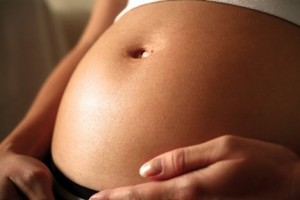
While you may have survived on rice crackers and mashed potatoes for the first 12 weeks, your ‘morning sickness’ diet isn’t generally one you want to maintain in the long term. Eating well while pregnant is not only crucial for your baby, but also so that you keep yourself as strong, healthy and well as possible.
If you were a healthy weight before falling pregnant, you’ll only need around 300 extra calories a day during the second trimester, which then climbs slightly higher to 450 calories per day in your third and final stretch. It’s not so much about eating for two, but filling your diet with the right kinds of food. Protein, essential vitamins and minerals like Folic acid and iron and complex carbs for energy are all important parts of your pregnancy diet.
Eating regular, healthy meals is the best way to ensure that your energy levels are kept stable, and bubs is kept happy. It’s also important to consider the GI of your food. Gestational diabetes (diabetes that occurs during pregnancy) is an increasingly common condition. Eating a low GI, nutritious diet is one of the best ways to reduce your chances of developing GD while also keeping your weight gain to a healthy level.
Making sure you include certain foods in your diet is a great way to ensure that you’re getting all the nutrients you need. Try integrating the below for nine months of a healthy, blooming pregnancy.
- Folate – Folate or folic acid is a B vitamin that’s important for your baby’s development, especially during the early stages of pregnancy. Your pregnancy multivitamin will contain added folic acid but including foods rich in folate is another way to ensure you’re getting enough.
Try: Leafy green veggies, freshly squeezed orange juice or a handful of peanuts of hazelnuts as a snack. - Iron – Iron is an essential nutrient for energy, for both you and your baby. Your daily iron intake increases from 18 mg to 27 mg a day during pregnancy which means you need to up your iron rich foods to get enough.
Try: lean red meat or tofu, legumes, wholegrain pasta/bread and cereal and veggies like spinach. - Calcium – We need calcium to keep our bones healthy. When pregnant, we also need it to form our babies’ bones and teeth. If you don’t get enough, your baby will end up drawing the calcium it needs from your bones, leaving them in less than great shape.
Try: Smoothies made with milk, yoghurt or custard for dessert, a handful of almonds as a snack. - Omega 3 – Omega 3 fatty acids are essential for healthy brain development for your baby, along with keeping your own body healthy and happy. Getting enough omega 3 is sometimes difficult so including a supplement can be a good idea.
Try: Oily fish like salmon or tuna once a week, flaxseed oil as a salad dressing, linseed or chia seeds in your baked goods or smoothies.
GET YOUR 10% DISCOUNT
If you are ready to lose weight then the Lose Baby Weight plans offer a healthy and safe exercise and diet routine and you can get a 10% discount by using code LOYALTY at the checkout.
